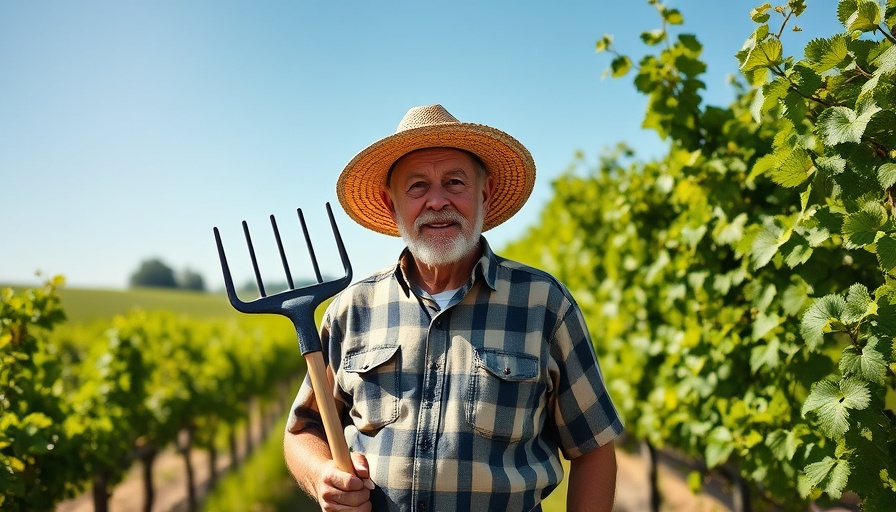
Understanding the Cost of Starting a Farming Career
Thinking about transitioning from a traditional job to becoming a farmer? You're not alone. Many aspiring farmers today are reconsidering their life choices, looking for a new beginning in the agricultural sector. However, the journey from 'money zero to farmer hero' can be daunting, especially when it comes to understanding the significant financial investment required to launch a successful farming operation.
Breaking Down the Financial Barriers
To embark on a farming career, especially for those without a family farming background, initial costs can be prohibitive. A recent evaluation shows that an individual might need around $70,000 just to secure a degree in agriculture. This educational investment is crucial, as banks often require formal qualifications before approving loans for equipment and land. This necessary qualification not only shows commitment but also uplifts your chances of securing financial assistance from landlords and other entities, reinforcing the importance of education in agriculture.
Equipment: The Heart of a Farming Operation
Once armed with the necessary knowledge, the next hurdle is the essential equipment. A functional farming setup involves considerable expenditure on various implements:
- Combine harvester: $175,000
- Tractor: $125,000
- Grain truck: $60,000
- Planter: $75,000
- Additional tools and equipment: $540,000
This totals about $715,000 for essential machinery alone, not including necessary buildings and structures such as barns and storage facilities, which could add $275,000 more to your budget. Realistically, to start a profitable operation, owning approximately 500 acres of farmland is advisable, translating to an additional $3,750,000 at the market rate of $7,500 per acre.
The Final Costs: Are You Ready?
Tallying these amounts leads to a staggering estimate of about $5,157,500 to initiate a farming enterprise. These figures reflect both the harsh reality of required startup capital and the ongoing operational costs farmers face each growing season. Even with all this capital, new farmers must focus on more than just startup costs; maintaining adaptability and expertise is crucial in an unpredictable market.
Navigating the Challenges of Farming
Despite the high costs of entry into farming, some may find their passion for sustainability and local food production outweighs these financial barriers. Understanding network connections, local markets, and even joining community gardens can provide support and further insight into farming without diving into overwhelming costs initially. Urban farming, vertical farming, or hydroponic systems encourage aspiring farmers to start on a smaller scale, fostering skills while minimizing startup investments.
Creating Sustainable Pathways in Agriculture
While the complexity of starting a farming business can be intimidating, researching options can lead to unique solutions. Urban agriculture and rooftop farming present phenomenal opportunities to explore sustainable practices without the need for extensive land. While it may take time to cultivate expertise, the emphasis on self-sufficiency can inspire individuals to take steps toward a sustainable lifestyle, enhancing community connections and promoting local food security.
Final Thoughts: Farming and Your Future
Ultimately, if you dream of becoming a farmer, remember that the journey is about perseverance and creativity. Seek knowledge, connect with other like-minded individuals, and continually embrace sustainable practices. As you navigate through these costs and challenges, consider exploring community gardens, cooperative farming ventures, or even vertical farming initiatives that lower your initial barriers, allowing your aspirations to bloom.
So, as you contemplate this immense transition from 'money zero to farmer hero,' embrace the lessons learned and the community connections available to you, while recognizing the remarkable potential that fresh produce can bring to both tables and hearts.
 Add Row
Add Row  Add
Add 




 Add Row
Add Row  Add
Add 

Write A Comment